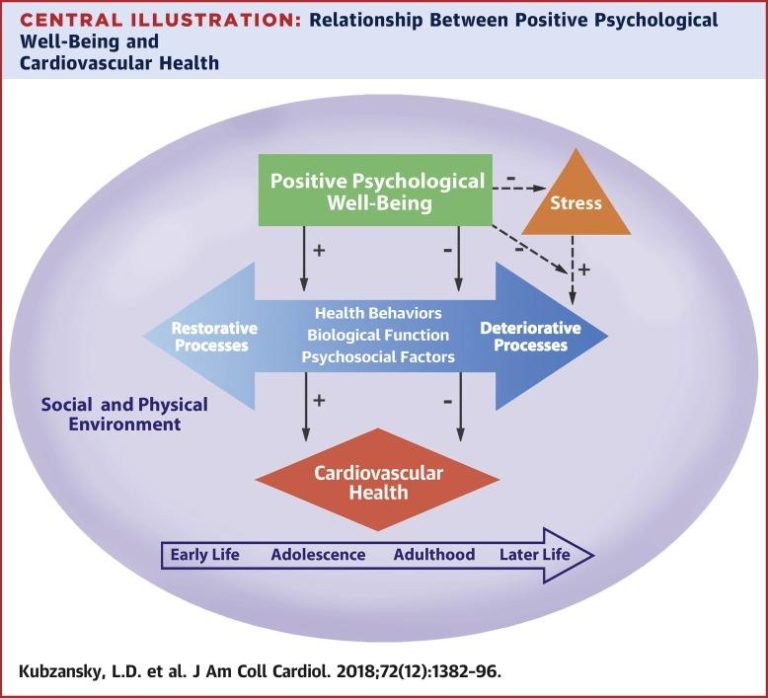In a world where our hearts endure more stress than a cat in a room full of rockers, maintaining good cardiovascular health is no laughing matter—or is it? Welcome to the surprisingly amusing and profoundly beneficial world of meditation for heart health. Yes, it’s true: the same practice that helps you stay zen when your neighbor’s dog is auditioning for America’s Got Howling can also reduce your risk of coronary disease. So sit back, relax, and take a deep, meditative breath as we explore how tuning into your inner calm can turn your ticker into a champion marathon runner rather than a sputtering jalopy. Let’s find out how a little om, combined with laughter, might just be the best medicine for your heart.
Finding Inner Peace and Healthy Arteries: Meditation’s Double Benefit
Imagine your heart as a knight and meditation as a trusty shield. Together, they embark on a quest to find not just tranquility but also reinforce the heart’s defenses against unwelcome invaders like stress and anxiety. Recent studies suggest that practicing meditation regularly can truly transform your heart health. By sitting silently for just a few minutes each day, you kick off a domino effect that can help lower blood pressure, reduce stress, and even decrease inflammation. And yes, it’s a cheaper (and quieter) alternative to investing in fancy gadgets or turning to elaborate wellness fads!
But how exactly does this daily calm help unblock those arteries? Here’s a simple breakdown:
- Stress Reduction: Picture stress as your heart’s arch-enemy. Meditation calms the storm and gives your heart some much-deserved peace.
- Lower Blood Pressure: Like letting air out of a too-full balloon, meditation helps release tension, resulting in healthier blood pressure numbers.
- Improved Blood Flow: More Zen means more oxygen-rich blood, kind of like upgrading from a moped to a Ducati.
Want to know what happens inside your body as you meditate? Check this out:
| Body Function | Meditation Magic |
|---|---|
| Heart Rate | Drops to a soothing, vacation-mode pace |
| Cortisol Levels | Behaves like a well-trained puppy – stays low |
| Endorphins | Throw a party, boosting your mood and resilience |

The Science of Zen: How Mindfulness Keeps Your Heart Calm and Collected
Ever felt like your heart is hosting an EDM festival after your third cup of coffee? Well, it’s probably time to consider mindfulness and turn that chaotic rave into a peaceful yoga retreat. Science has cracked the code: practicing mindfulness can help in keeping your heart calmer and healthier. But how?, you ask. By engaging in mindfulness exercises, your stress levels drop, your blood pressure dips, and your heart rate proceeds to take a digital chill pill!
- Lower Stress Levels: Imagine swapping your worries for a pair of comfy slippers—mindfulness does just that.
- Reduced Blood Pressure: Think of it as lowering the volume on life’s never-ending rock concert.
- Enhanced Sleep Quality: Say goodbye to staring at the ceiling and hello to counting sheep in a dreamy meadow.
For those who love numbers (and who doesn’t love a good data point now and then?), check out this heart-healthy table that shares simple hacks to incorporate mindfulness into your daily routines:
| Mindfulness Activity | Heart-Saving Benefit |
|---|---|
| 5-minute Breathing Exercise | Instant Calm |
| Walking in Nature | Boosts Mood |
| Gratitude Journaling | Reduces Anxiety |
So, the next time you’re overwhelmed, remember to breathe, think of fluffy clouds, and maybe—just maybe—lay off that extra espresso shot. Your heart will thank you with a slower, more collected rhythm. So zen, right?

From Om to Athletic: Meditation Techniques that Double as Cardio
When we think about meditation, heart-pumping excitement usually doesn’t come to mind. But did you know some meditation techniques can get your blood flowing in more ways than one? These aren’t your average “sit-and-breathe” sessions but involve movement that’s akin to a gentle cardio workout. Ever tried the Tai Chi two-step or the down-dog dance? Well, these practices—like Qi Gong, Kundalini Yoga, and Dynamic Meditation—are out to prove that you can clear your mind and your arteries too. These techniques combine rhythmic movements and focused breathing, creating a cardiovascular boost that can make even your Fitbit raise an eyebrow with curiosity.
Here’s a snapshot of popular meditation styles with built-in cardio perks:
- Tai Chi: Graceful, slow movements that improve balance and get heart rates gently elevated.
- Kundalini Yoga: Known as the yoga of awareness, this involves using breathwork to ignite your internal energy, sometimes making your heart dance along.
- Dynamic Meditation: Designed to shake up stress and work out the heart with an energetic routine of shaking, dancing, and stillness.
For those who love data as much as a dragonfly loves sunlight, feast your eyes on this bite-sized info table:
| Meditation Style | Heart Rate Boost (%) | Fun Factor |
|---|---|---|
| Qi Gong | 10% | High |
| Kundalini Yoga | 15% | Moderate |
| Dynamic Meditation | 20% | Very High |
So, next time you’re searching for a workout that marries tranquility with a sprinkle of adrenaline, consider these cardio-infused meditation techniques. You might just find serenity as your new secret weapon against the villains of coronary disease!

Action Plans for the Heart-Challenged: Turn Stress into Laughter Yoga
Feeling stressed? Instead of letting it crank up your blood pressure, why not transform it into a giggle session? Laughter yoga is a surprisingly simple way to tickle your heart into health. It combines playful exercises with deep-breathing techniques of yoga. Soon enough, you might find yourself bursting into laughter for no reason at all! The best part? Your heart will thank you, and so will those face muscles that don’t get enough workout. It’s as easy as A-B-C:
- A: Act Like a Child – Tap into your inner child and go wild!
- B: Breathe Deeply – Giggle and guffaw while taking in big gulps of air.
- C: Connect with Others – Laughter really is contagious when you’re in a group.
You may think, “What if my laugh sounds like a duck quacking?” Don’t fret! Here’s a quick guide to get you started on your journey to laughter yoga mastery:
| Step | Action |
|---|---|
| 1 | Join a laughter yoga class to learn the ropes and meet fellow giggle enthusiasts. |
| 2 | Practice silly chants like “Ho, Ho, Ha, Ha, Ha!” if all else fails, it’s sure to get a chuckle. |
| 3 | Remember, forced laughter often turns into genuine laughter – it’s a sneaky little trick! |
So, say goodbye to stress by laughing your heart out quite literally. Who knew reducing coronary risk could be such a hoot?
Q&A
Q: What’s the connection between meditation and heart health?
A: Imagine your heart as a high-strung, overworked employee. Meditation is like that much-needed coffee break – it doesn’t replace work but makes everything more bearable. Scientific studies suggest that taking time to meditate can lower stress, blood pressure, and cholesterol levels, all of which are crucial for maintaining a happy and healthy heart.
Q: How exactly does meditation help in reducing coronary disease risks?
A: Think of meditation as a gym session for your mind but without the sweaty gym clothes or hefty membership fee. It helps you flex your relaxation muscles, reducing stress hormones that can damage your heart over time. Plus, it encourages better lifestyle habits, like not eating a whole pizza while binge-watching stress-inducing TV shows.
Q: Isn’t meditation just sitting around doing nothing? How does that help?
A: It might look like you’re just sitting there contemplating whether your spirit animal is a sloth, but meditation actually calms your mind and reduces stress. This mental peace translates into physiological benefits, like reduced strain on your ticker. So while it seems you’re doing zilch, you’re really giving your heart a spa day.
Q: Can anyone practice meditation, or do you need to be a yoga guru?
A: Absolutely anyone can meditate! No need to twist yourself into a pretzel pose or chant in Sanskrit to reap the benefits. Whether you’re a high-powered executive or someone who still can’t figure out how to match their socks, meditation is inclusive and beneficial for all heart types.
Q: How often should one meditate to see a difference in heart health?
A: It’s not like scheduling a dentist visit—you don’t need to dread it. Just a few minutes a day keeps the stress monsters at bay. While 20 minutes a day is recommended, even a short mental vacation, such as 5 minutes of peace, can help you build consistency and show your heart some love.
Q: What are some potential obstacles when starting meditation?
A: You might find your mind jumping around like a squirrel on espresso. Or perhaps your to-do list decides to put on a parade in your head. Fear not! This is perfectly normal. With regular practice, you’ll train your mind to calm down, much like teaching a puppy to sit—only without the treats… unless you want to reward yourself with a cookie afterward, in which case, I won’t judge.
Q: Does meditation replace cardiac medication or doctor visits?
A: Nope, if meditation were a magic pill, it’d have been bottled by now. Think of it as a sidekick to your prescribed treatments—not a replacement. Always consult with a healthcare professional before making any changes to your medical routines. Meditation complements medication; it doesn’t compete.
Q: I’m convinced! How do I start meditating?
A: Find a quiet corner, sit or lie down (try not to fall asleep, though if you do, well, bonus!). Close your eyes, breathe in, breathe out, let go of your mind’s ramblings. There are tons of apps and guided meditations online—perfect for those of us who need a little help in mastering the art of doing—seemingly—nothing!
The Way Forward
As we conclude our journey into the harmonious realm of meditation and heart health, it’s clear that the path to a resilient ticker is less about wearing a superhero cape and more about sitting still in your pajamas. It’s remarkable how taking a break from life’s daily chaos to simply breathe can do wonders for your heart, potentially dodging the grips of coronary disease like a skilled ninja.
You see, meditation isn’t just for those zen masters or trendy yogis who can wrap their legs around their heads like pretzels. It’s for everyone who wants to give their heart a little TLC without breaking a sweat—after all, the only heavy lifting required is managing to keep your mind from wandering to that leftover pizza in the fridge.
So, whether you’re a seasoned meditator or a curious novice, remember that incorporating this practice into your life can turn your mind into a spa for your heart. It’s the most stress-free prescription around—no copays, no pharmacy lines, just you and your breath on a journey to better heart health.
In the grand ballet of cardiovascular wellness, let meditation take center stage. Who knew that finding your inner peace could be the secret to a happy heart? Now, go on and sit still—your heart will thank you with every beat.


